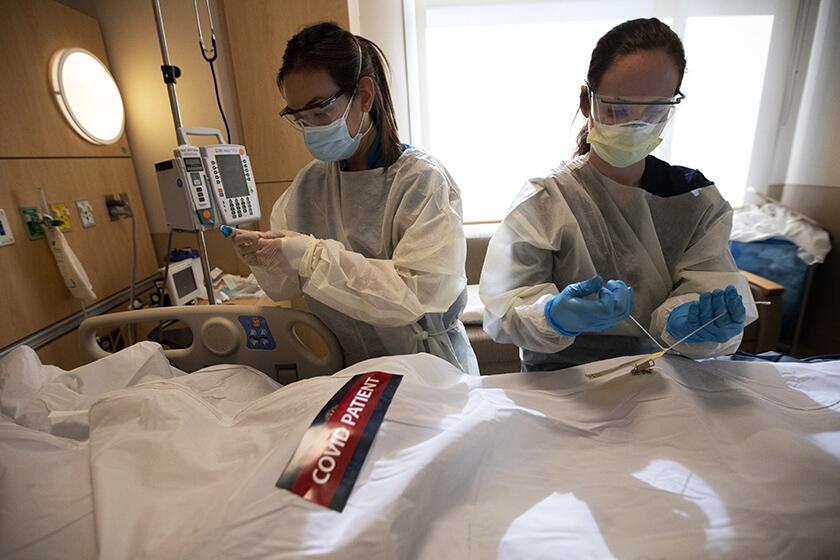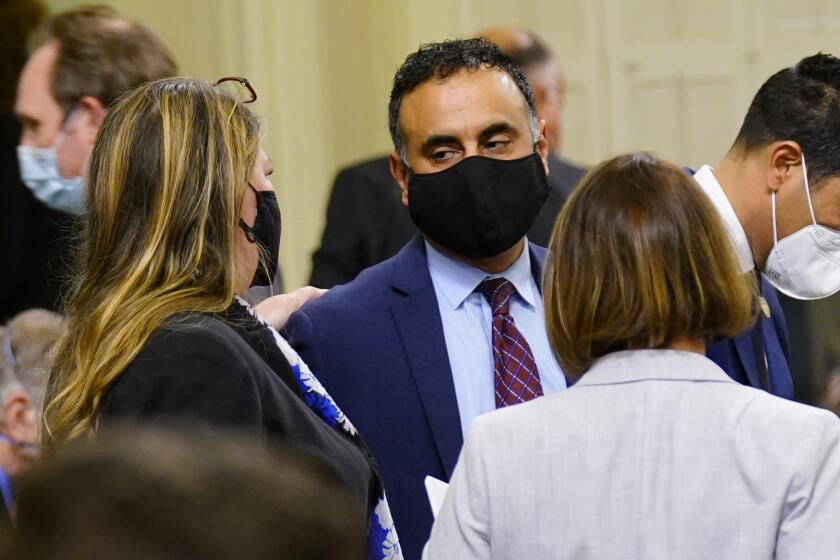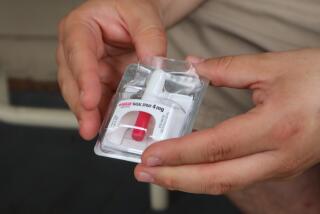After ambitious single-payer healthcare plans sputter, a new California bill tries an incremental approach

- Share via
A new bill introduced in the California state Senate aims to lay the groundwork for a state universal healthcare system, proposing an incremental approach that departs from recent sweeping, and unsuccessful, efforts to reshape how Californians receive care.
Under the measure by state Sen. Scott Wiener (D-San Francisco), California would begin the process of seeking a waiver from the federal government to allow Medicaid and Medicare funds to be used for a first-in-the-nation single-payer healthcare system.
“In the wake of COVID-19’s devastation, and as costs for working people have skyrocketed, the need to provide affordable healthcare to all Californians has never been greater,” Wiener said in a statement. He touted his measure as making “tangible steps on a concrete timeline toward achieving universal and more affordable healthcare in California.”
The legislation would require California’s health secretary to offer recommendations on crafting the federal waiver by June 1, 2024.
A recent study offers an additional explanation for America’s high COVID-19 death toll — our lack of universal healthcare.
Proponents say single-payer healthcare — which would cover every California resident and be financed entirely by state funds (including repurposed federal dollars) — is more efficient than our current system, in which available care and cost is dependent on whether a person has private insurance, is enrolled in a public plan such as Medi-Cal or is uninsured.
Universal healthcare is a leading priority for progressives, who have rallied around the “Medicare for all” plan championed by Sen. Bernie Sanders (I-Vt.) during his two presidential runs. A 2017 California bill to establish a single-payer system cleared the state Senate, but it was shelved by Assembly Speaker Anthony Rendon (D-Lakewood).
The setback galvanized the left wing of the Democratic party, which saw single-payer as a litmus test for political candidates, and Gov. Gavin Newsom embraced the cause during his 2018 campaign.
On his first day in office in 2019, Newsom asked Congress and the White House, then occupied by President Trump, to change federal laws that would enable California to pursue a single-payer system.
But Newsom has put more focus on expanding coverage in California for people living in the country illegally. Meanwhile, his 2019 budget created a commission to explore the steps to achieve a universal healthcare system; that panel issued its final report last year.
Newsom declined to weigh in on the last major legislative push for single-payer, a bill by Assemblyman Ash Kalra (D-San Jose). That measure was abruptly pulled by Kalra last year after fellow Democrats balked at the price tag, which ranged from an estimated $341 billion and $391 billion.
Despite another setback, the fight continues for California Democrats trying to transition single-payer healthcare from ideology into policy.
The primary advocate of a single-payer system, the California Nurses Assn., slammed Kalra for refusing to put the bill up for a vote on the Assembly floor. But they are partnering with Kalra again this year on a renewed effort to pass a universal healthcare system, which they dubbed CalCare.
Kalra’s bill is sparse on details at the moment, signaling that the bill’s sponsors anticipate an extended campaign to boost support both among legislators and with grassroots activists. The nurses’ union is sponsoring 45 events across California this weekend to rally support for its effort.
Wiener’s legislation takes a decidedly more modest tack, focusing solely on the federal waiver process. Sal Rosselli, president of the National Union of Healthcare Workers and a supporter of the bill, said this approach reflects lessons learned from the failure of two hotly contested, more comprehensive measures.
“From my point of view, this is not controversial at all,” Rosselli said. “Our governor, the administration, the Senate, the Assembly, the majority of our elected leaders are in support of this system to fix our healthcare.”
Still, he acknowledged that fierce opponents of single-payer — largely the major healthcare industry interests — may feel differently.
“I don’t expect the industry to support this on any level whatsoever,” he said.
Preston Young, a policy advocate for the California Chamber of Commerce, signaled that the business group was wary of the plan.
“Regardless of the incremental approach, the fact remains that a single payer healthcare system operated by the state will cost taxpayers hundreds of billions of dollars on an annual basis,” Young said.
More to Read
Get the L.A. Times Politics newsletter
Deeply reported insights into legislation, politics and policy from Sacramento, Washington and beyond. In your inbox three times per week.
You may occasionally receive promotional content from the Los Angeles Times.













